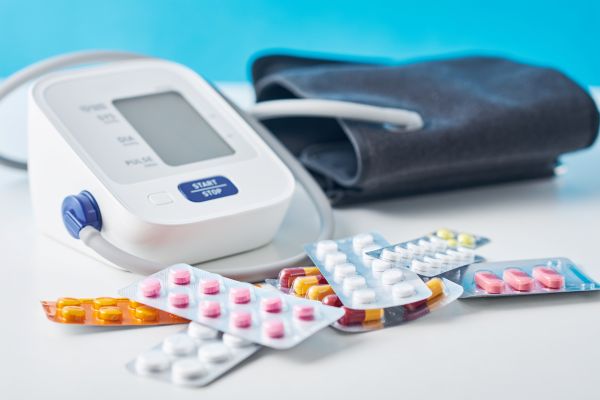
Are New Blood Pressure Medications Effective in Improving Erectile Function? Meta-Analysis Investigates

Beta blockers, most commonly used for heart problems and hypertension (low blood pressure), have notoriously been problematic for the erectile function of biological males, often increasing the risk of erectile dysfunction (ED), which is defined as the inability to maintain an erection long enough to engage in a satisfactory sexual experience and is a common issue in male sexual medicine.
In comparison to older beta blockers, such as metoprolol, a newer option, nebivolol, has been approved for clinical treatment in Europe and the U.S. Nebivolol stimulates nitric oxide (NO) synthases which are enzymes said to help induce smooth muscle relaxation and vasodilation, both of which increase blood flow to the penis. Therefore, it could be assumed nebivolol would help to maintain an erection, potentially contributing to improved erectile function. However, there currently is not enough research to prove this idea.
A recent meta-analysis aimed to investigate the effect of nebivolol on erectile function in comparison to older beta blockers. The Index of Erectile Function-5 (IIEF-5) questionnaire from four previous randomized controlled trials (RCTs) was used to evaluate the effect of nebivolol on erectile function. Researchers implemented a strict selection process to decide which trials would be used in their meta-analysis, filtering out those that did not include enough analyzable data or subgroups.
From these four studies, 397 individuals from 8 subgroups – each with a different condition and treatment type – were compared. Each individual was either being treated for hypertension or undergoing coronary artery bypass grafting (CABG). The participants in these studies were either on metoprolol or on nebivolol. A comparison of these individuals showed higher IIEF-5 scores in the nebivolol group than the metoprolol group. Additionally, the hypertensive group showed higher scores than the CABG group, which could be attributed to some of the data provided not being comparable to the rest of the group. Overall, the data showed that nebivolol significantly reduces the risk of ED onset or progression when compared to metoprolol.
There were many limitations to this analysis, such as the number of trials included, potential biases, lack of reporting from those experiencing ED, etc. The IIEF-5 also does not include questions inclusive of celibate or gay men. Because of these limitations, the authors cannot confirm a definitive conclusion. However, there were significant differences between metoprolol and nebivolol on reducing risk of ED in men with hypertension. Authors recommend that future studies include missed variables, such as severity of ED, minority groups, and other beta blockers or placebos to truly test nebivolol’s effectiveness on reducing one’s risk of ED.
Current research does not provide enough information as to the negative side effects of nebivolol, and it is not available commercially in many countries. It’s always beneficial to speak with your healthcare provider prior to taking nebivolol or any heart medications.
References
- Lu, Y., Li, L., Li, Q., & Sun, G. (2024). Effect of nebivolol on erectile function: A systematic review and meta-analysis of randomized controlled trials. The Journal of Sexual Medicine, 22(2), 307–316. https://doi.org/10.1093/jsxmed/qdae189



